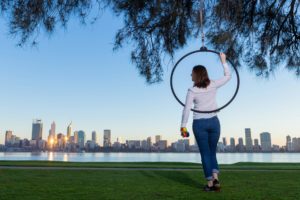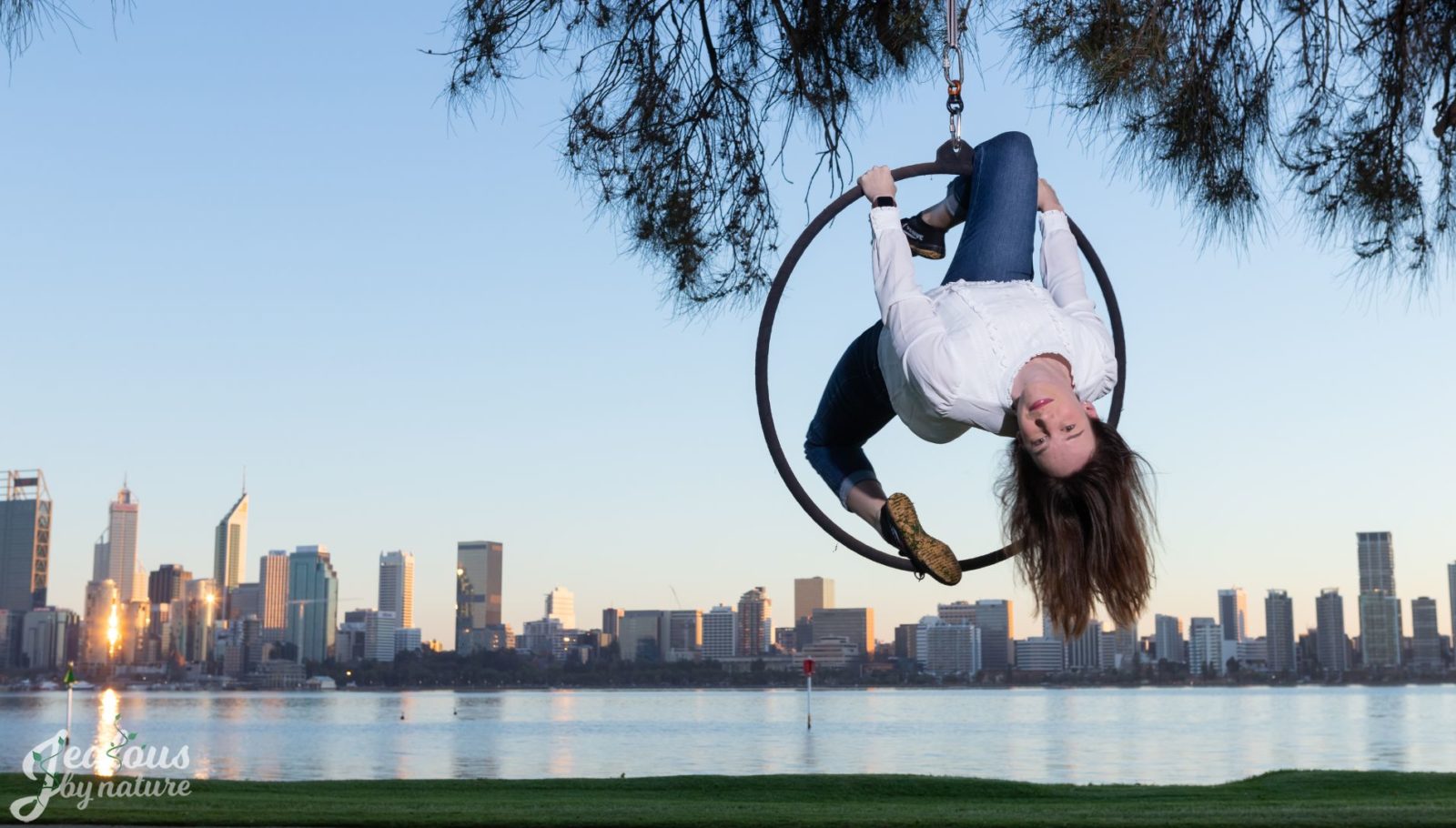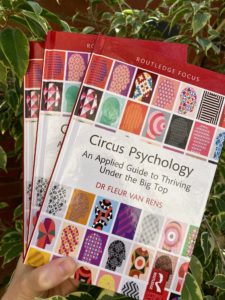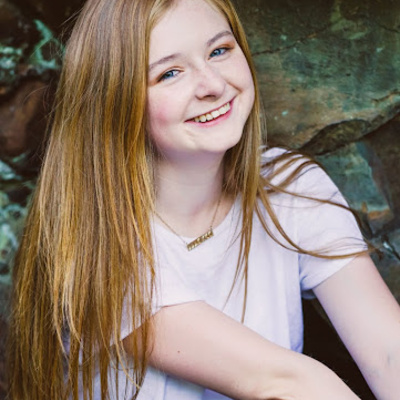Trampoline Tricks to Mind Tricks: A Trampoline Guru’s Guide to Better Mental Health in the Circus Industry
Combining her passion for circus with her academic background, aerialist and writer Fleur Van Rens, Ph.D., set out to help performers and companies take charge of their mental health. Learn more about the Circus Psychology: An Applied Guide to Thriving Under the Big Top author and her journey here.

At 12 years old, Fleur Van Rens’ parents took her to the library to satisfy her newfound desire to learn trampoline tricks. Little did they know that a simple trampoline trick book would lead to her life in circus arts.
Once Van Rens mastered the art of the trampoline somersault, her parents signed her up for trampoline classes. While she moved cities quite often growing up, she always found her way back to the trampoline.
When she started studying psychology, she realized she could apply a lot of what she was learning to her love for sports. And so her fascination with sports psychology was born.
Through a Master’s degree, a Ph.D., a broken ankle, and of course some trampoline, she found her way to aerial silks, Lyra, and an incredible circus community.
Her Ph.D. studies focused on the effects of stressors on the well-being of talented athletes. Specifically, she was drawn to applying what she was learning to the circus industry.
“I became curious. I searched all of the scientific literature and found that there was barely any research about the mental health and performance of circus artists,” Van Rens said.
Due to this lack of resources, she set off to do her own research. While researching, she continued to train and occasionally perform.
“Being around all of these wonderful, hard-working artists taught me a lot about their welfare and the challenges in the circus industry. I knew more needed to be done, but didn’t know how to go about it just yet,” Van Rens said.
In 2018, Van Rens caught wind of Emily Scherb’s book Applied Anatomy of Aerial Arts. She bought it, read it, and started dreaming. With all her experience in psychology as well as in the circus industry, what if she could write an applied circus psychology book?

With support from Emily Scherb and Routledge Publishing and a little extra time on her hands thanks to the pandemic, Van Rens got to writing, revising, and writing some more. The book proposal was sent out and Circus Psychology: An Applied Guide to Thriving Under the Big Top began its journey.
Her book was written for professional and emerging circus artists, directors, coaches, and other educators. But the book is also suitable for recreational circus artists and other cast and crew working in the circus industry.
“Attention to the mental health and performance of circus artists is long overdue,” Van Rens said. “Circus artists perform physically and mentally demanding skills, often in front of a live audience. But unfortunately, there is very little mental health support and education available to circus artists and others in the circus industry.”
For Van Rens, this book means that there is now a resource available to circus artists where they can learn to talk about mental health, understand the basics, and support the well-being of other circus artists. She hopes to see more artists contributing to a circus environment that supports thriving and using mental skills to support team mental health and performance.
There is not much research as to what mental health issues are the most common within the circus industry. But Van Rens listed financial insecurity and struggling with comparison as the top two.
“Comparing yourself to other circus artists leads to low levels of self-esteem, body dissatisfaction, disordered eating, and overtraining among some circus artists,” Van Rens said. “That’s why I think it’s important to equip circus artists with the skills to maintain high levels of self-worth despite inevitable comparisons and setbacks.”
So, besides reading Circus Psychology: An Applied Guide to Thriving Under the Big Top, what else can be done to support mental health? According to Van Rens, making psychological skill development a standard part of circus development alongside other important topics such as how to take care of their bodies, execute skills, and develop strength and flexibility, as well as nutritional advice. This could look like hiring a circus psychologist for larger circus organizations or hosting mental skills workshops for smaller ones.
“Better mental health education and practices can empower circus educators to confidently develop a psychologically safe environment where consent is used appropriately, issues in the environment are identified, and educators know when, where, and how to seek help,” Van Rens said.
Now Van Rens plans to spend time embedding the practices her book describes into the circus industry alongside her continuing research. She hopes to insert her research into large circus organizations via collaborations and guide research students to become leaders in circus psychology.
“We need to start empowering the circus artist. Let’s not wait until something goes terribly wrong before we send a circus artist to a mental health professional. Let’s look at what we can do to prevent problems from occurring,” Van Rens said.
All images provided by the author and Fleur Van Rens. Credit for images of Fleur to studio Jealous By Nature
Do you have a story to share? Submit your news story, article or press release.







